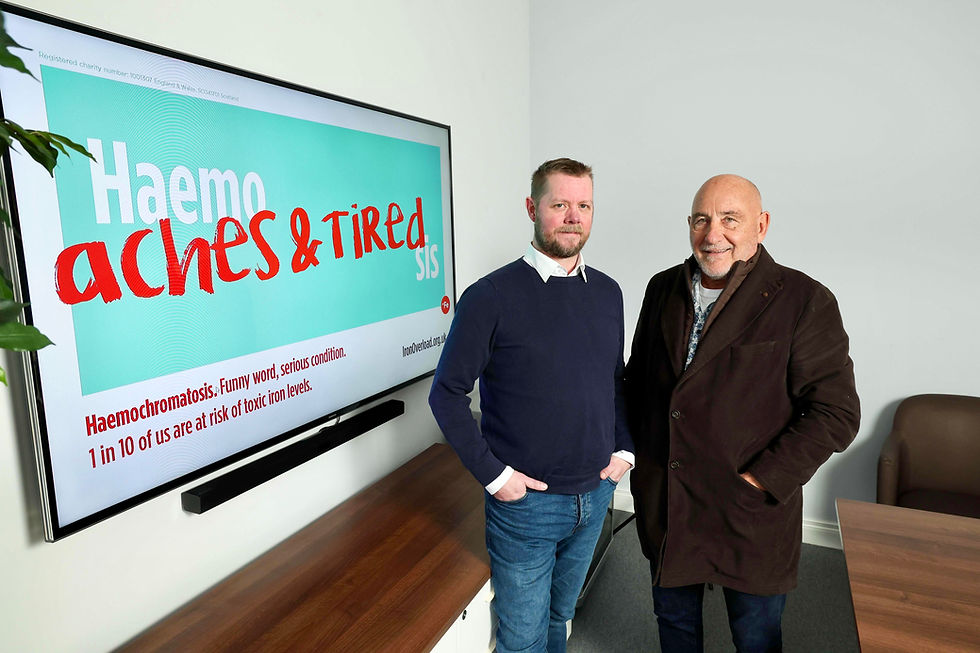Health Minister Mike Nesbitt unveils £215M plan to tackle Northern Ireland’s hospital waiting lists
- Love Ballymena

- May 6, 2025
- 3 min read

Health Minister Mike Nesbitt has announced a comprehensive £215 million package of initiatives aimed at addressing Northern Ireland’s hospital care backlogs, with a flagship Waiting List Reimbursement Scheme set to launch in June 2025.
The measures, funded through the Executive’s ringfenced health budget, represent a significant step towards reducing waiting times for critical and elective procedures, though the Minister cautioned that sustained investment over at least five years will be necessary to achieve acceptable levels.
The Waiting List Reimbursement Scheme, backed by an initial £10 million, will allow patients waiting two years or more for hospital treatment in Northern Ireland to claim back costs for procedures obtained outside the region.
Starting in the Republic of Ireland and later expanding to the rest of the European Union, the scheme requires prior approval from the Department of Health. This initiative is designed to provide relief for thousands of patients facing prolonged delays for essential treatments.
A Multi-Faceted Approach to Reducing Backlogs
The package encompasses a range of targeted measures to address long waits and enhance healthcare capacity across Northern Ireland. Key initiatives include:
Targeting Long Waits: Focusing on patients waiting four years or more for procedures such as hip and knee replacements, tonsillectomies, hernia treatments, gallbladder removals, and colonoscopies.
Specialist Paediatric and Women’s Care: Reducing waiting times for children requiring procedures like peg tubes, scopes, and scoliosis surgery, as well as women awaiting gynaecology mesh removal.
Partnerships with Independent Providers: Collaborating with the independent sector to clear outpatient waits of four years or more in specialties including ophthalmology, orthopaedics, general surgery, gynaecology, and ENT.
Mega Clinics: A £10 million investment to establish mega clinics, offering a ‘one-stop shop’ for approximately 20,000 additional patients. These clinics combine services such as surgical reviews and anaesthetic preoperative assessments in a single visit.
Expanding Red Flag and Time-Critical Services: Increasing capacity in specialties like endoscopy, diagnostic imaging (MRI and CT), urology, breast surgery, dermatology, systemic anti-cancer therapy, and cardiac surgery.
Primary Care Elective Services: A £2.9 million investment to treat around 16,500 patients in 2025/26, focusing on dermatology, minor surgery, and gynaecology.
Community and Voluntary Sector Support: A £500,000 annual Waiting Well Programme to support patients awaiting treatment and a £1 million per year Cancer Charities Programme to alleviate pressures on statutory cancer services.
Funding Challenges and Long-Term Commitment
Health Minister Nesbitt outlined the financial framework supporting these initiatives, stating:
“These planned investments reflect the Executive’s ringfencing of up to £215m in this year’s Health budget for waiting list activities – in line with the finalised Programme for Government. This breaks down into £85m for red flag and time critical care; £80m for building up capacity to address the long-standing mismatch with demand; and up to £50m to start tackling the backlog in care.
“Investment at this level will need to be sustained for at least five years to bring hospital waiting times down to acceptable levels. We are only at the foothills of what will be a long uphill trek.”
However, the Minister highlighted the funding constraints, noting:
“Only £50m of the ringfenced £215m total has involved additional monies for my Department. The initiatives being announced today are in large part being funded by monies diverted from my core budget for day to day services. That will have unavoidable consequences for wider health and social care provision.”
Nesbitt added that further details would be forthcoming, stating:
“I will provide more details on the different initiatives later this month with publication of an implementation plan for my Department’s Elective Care Framework.”
The Department of Health is also preparing to release detailed plans addressing financial pressures and necessary measures in the short and medium terms.
A Critical Step Forward for Northern Ireland’s Healthcare
The announcement marks a pivotal moment in Northern Ireland’s efforts to address its longstanding hospital waiting list crisis, which has seen thousands of patients endure delays for essential treatments. By combining innovative reimbursement schemes, expanded clinical capacity, and partnerships with the independent and voluntary sectors, the initiatives aim to deliver tangible improvements for patients across the region.
As the Department of Health prepares to roll out its Elective Care Framework, the focus will remain on sustaining investment and balancing the demands of elective and emergency care.
For patients, the Waiting List Reimbursement Scheme and expanded services offer hope of faster access to treatment, while the broader strategy underscores the Executive’s commitment to transforming Northern Ireland’s healthcare system.








